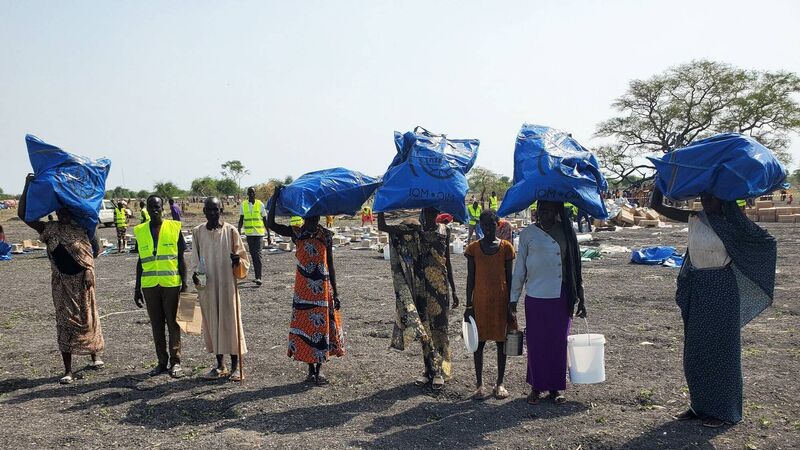After 100 days of fighting, Sudan is facing a humanitarian catastrophe

Concern distributing esssential items such as plastic sheeting blankets, mosquito nets, sleeping mats, cooking sets, solar lamps and ropes to people arriving from Sudan, in Rotriak settlement, Rubkona County Unity State, South Sudan. Photo: Abdul Ghaffar/Concern Worldwide
The scale and complexity of the crisis in Sudan, which has blown up since fighting erupted 100 days ago, means it is rapidly becoming one of the world’s worst humanitarian catastrophes in decades.
And, if the warring parties and the international community do not act urgently and effectively, it has the potential to expand beyond Sudan’s borders, destabilising the greater east Africa region.













